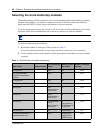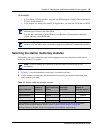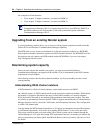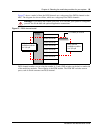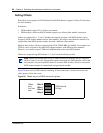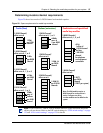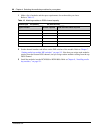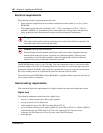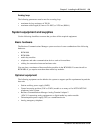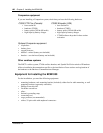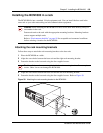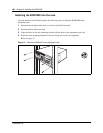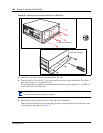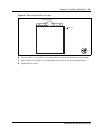
100 Chapter 5 Installing the BCM1000
P0993298 02
Electrical requirements
The following electrical requirements must be met:
• Power must be supplied from non-switched, unobstructed outlet within 1.5 m (5 ft.) of the
BCM1000.
• The supplied power must be a dedicated 110 V - 120 V ac nominal (or 220 V - 230 V ac
nominal), 50/60 Hz, 15 A minimum service with a third wire safety ground. The third wire
safety ground provides shock protection and avoids electromagnetic interference.
The BCM1000 power cord is 1.5 m (5 ft) long. You can connect the server to a power bar with a
maximum length of 2 m (6.5 ft), including power bar. You must use a power bar approved by an
appropriate National Test Body, with a third wire ground. Do not use an extension cord between
the server and the power bar, or between the power bar and the electrical outlet.
The cable between the BCM1000e and the BCM1000 is supplied with the expansion unit. Do not
use any other cables or connectors.
Internal wiring requirements
This section describes the requirements for a digital loop and an analog loop within the system.
Digital loop
The following parameters must be met for a digital loop:
• one, two, or three twisted-pair cable(s) per telephone
• dc loop resistance of less than 64 Ω
• cable length (0.5 mm or 24 AWG) less than 300 m (975 ft.)
• use of a station auxiliary power supply (SAPS) for loops 300 m (975 ft.) to 1200 m (3900 ft.).
In North America, the SAPS must be a CSA or UL approved Class 2 power source.
In Europe, the SAPS must be a Class II power source and CE marked.
• no bridge taps
Danger: Risk of electric shock.
The safety of this product requires connection to an outlet with a third wire ground. Use
only with a three wire power cord and outlet.
Caution: Check ground connections.
Ensure that the electrical ground connections of the power utility, telephone lines and
internal metal water pipe system, if present, are connected together. If these ground
connections are not connected together, contact the appropriate electrical inspection
authority. Do not try to make the connections yourself.



